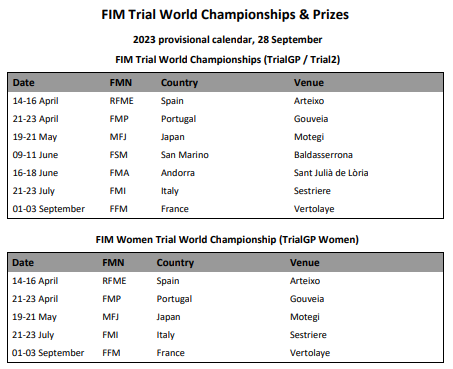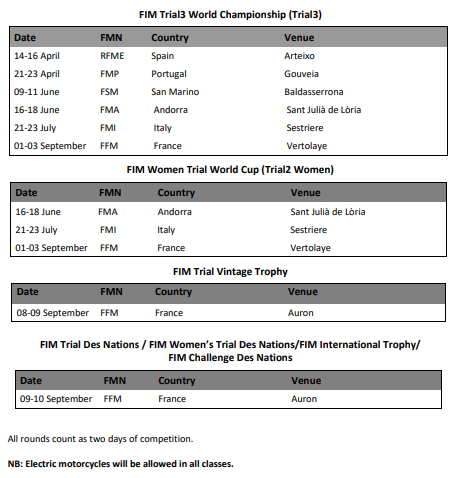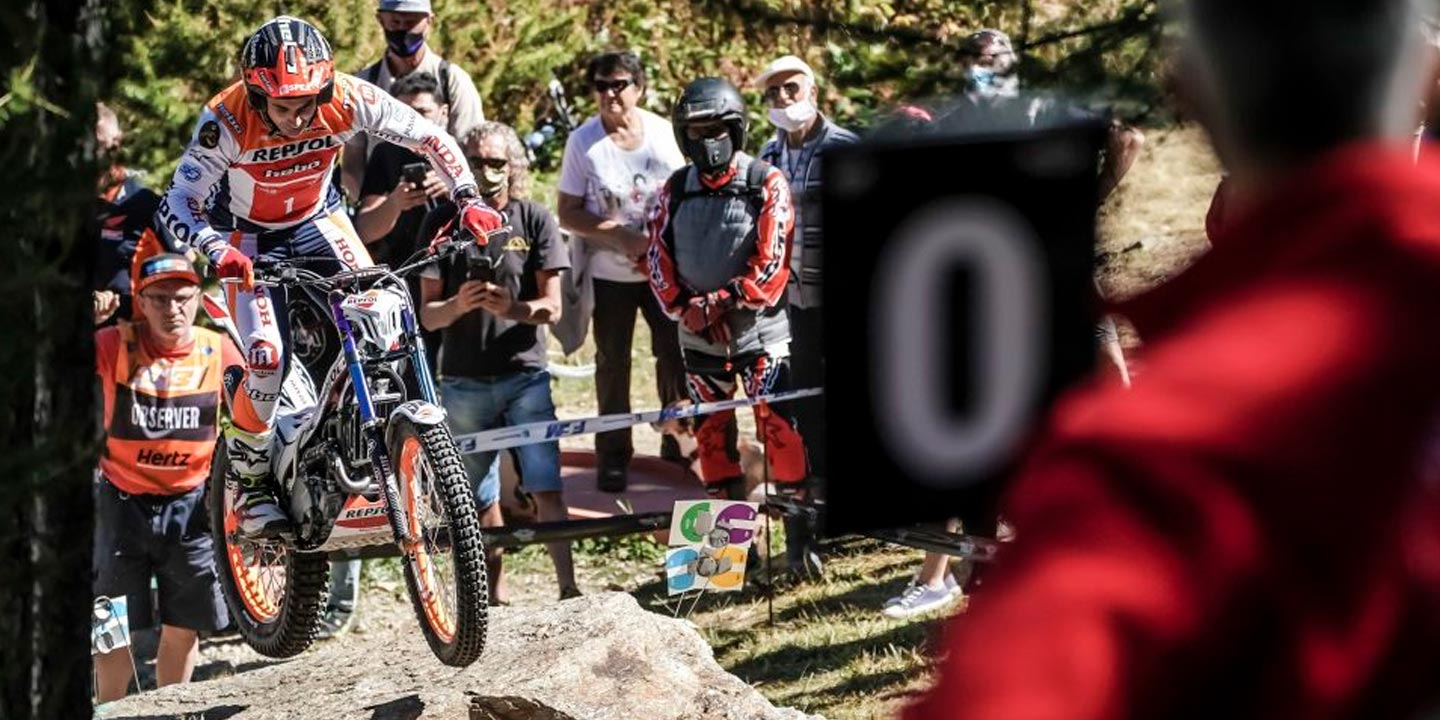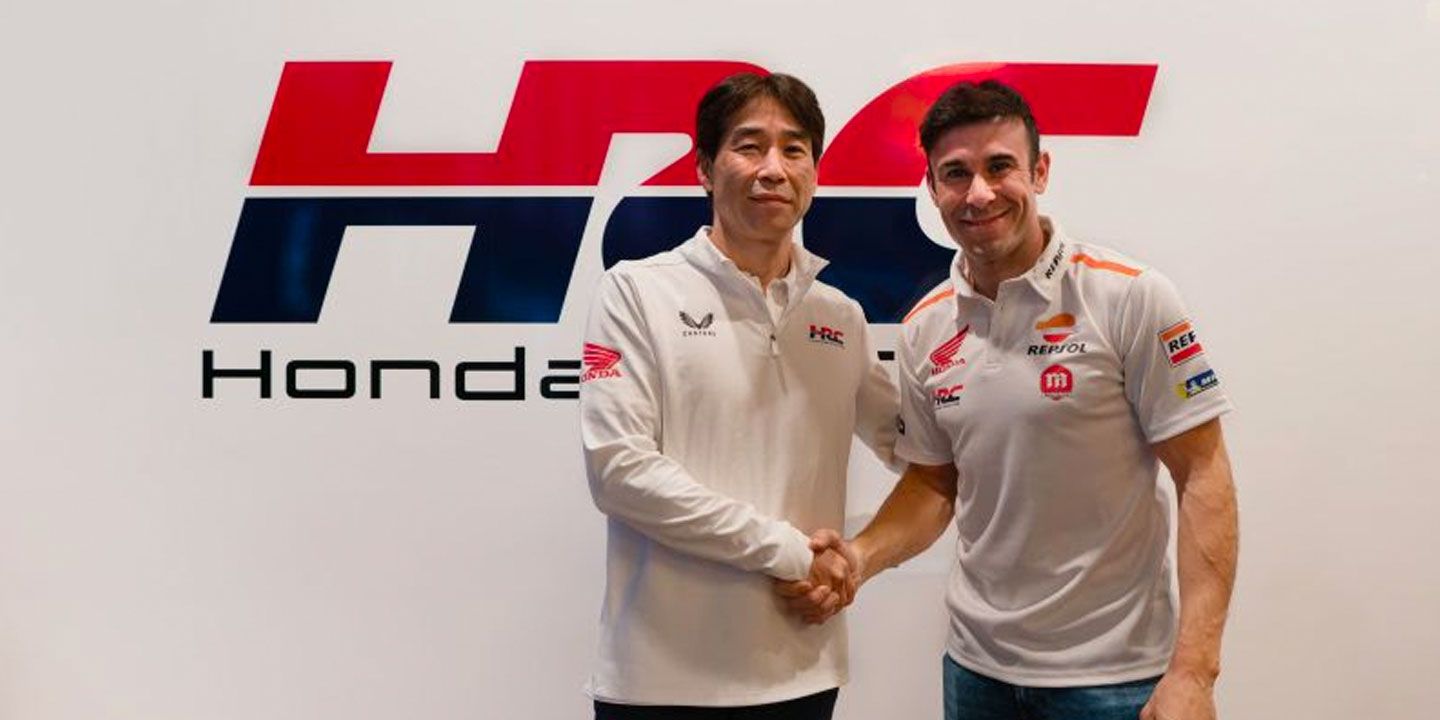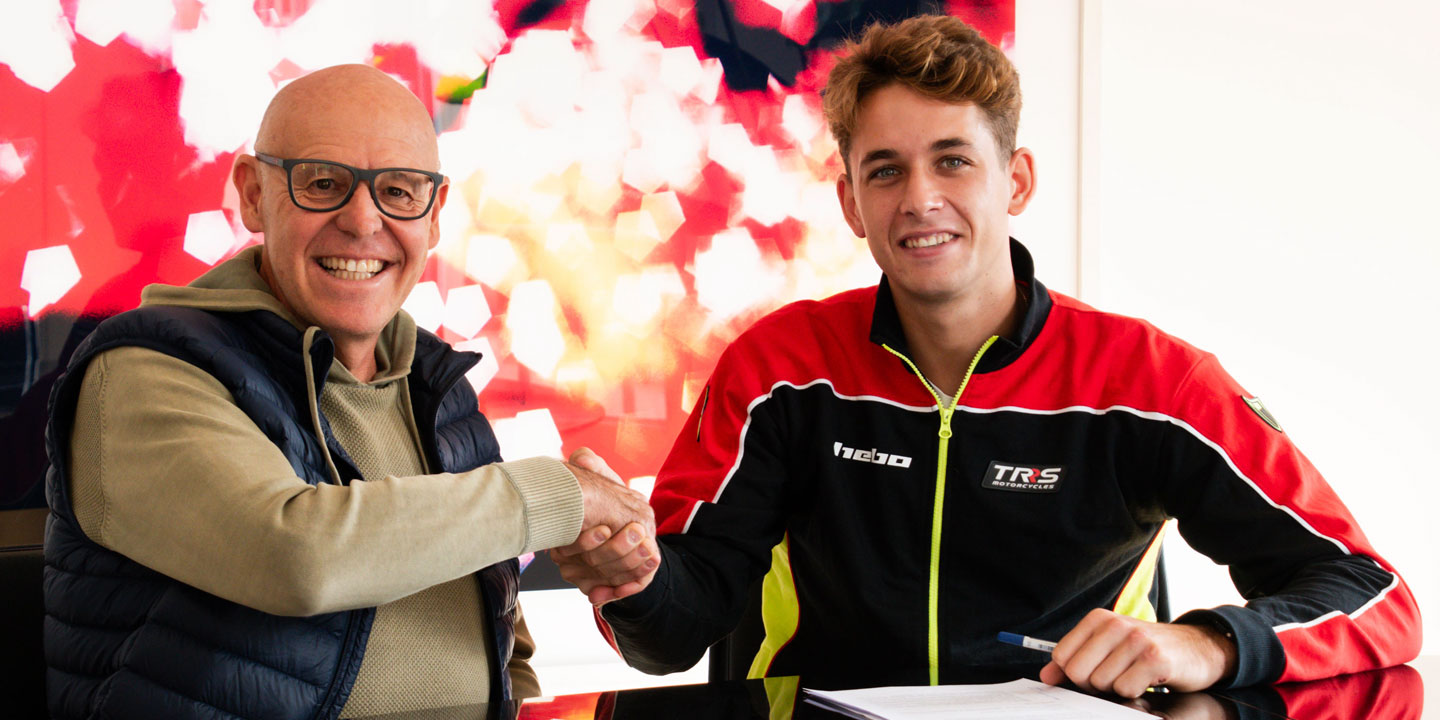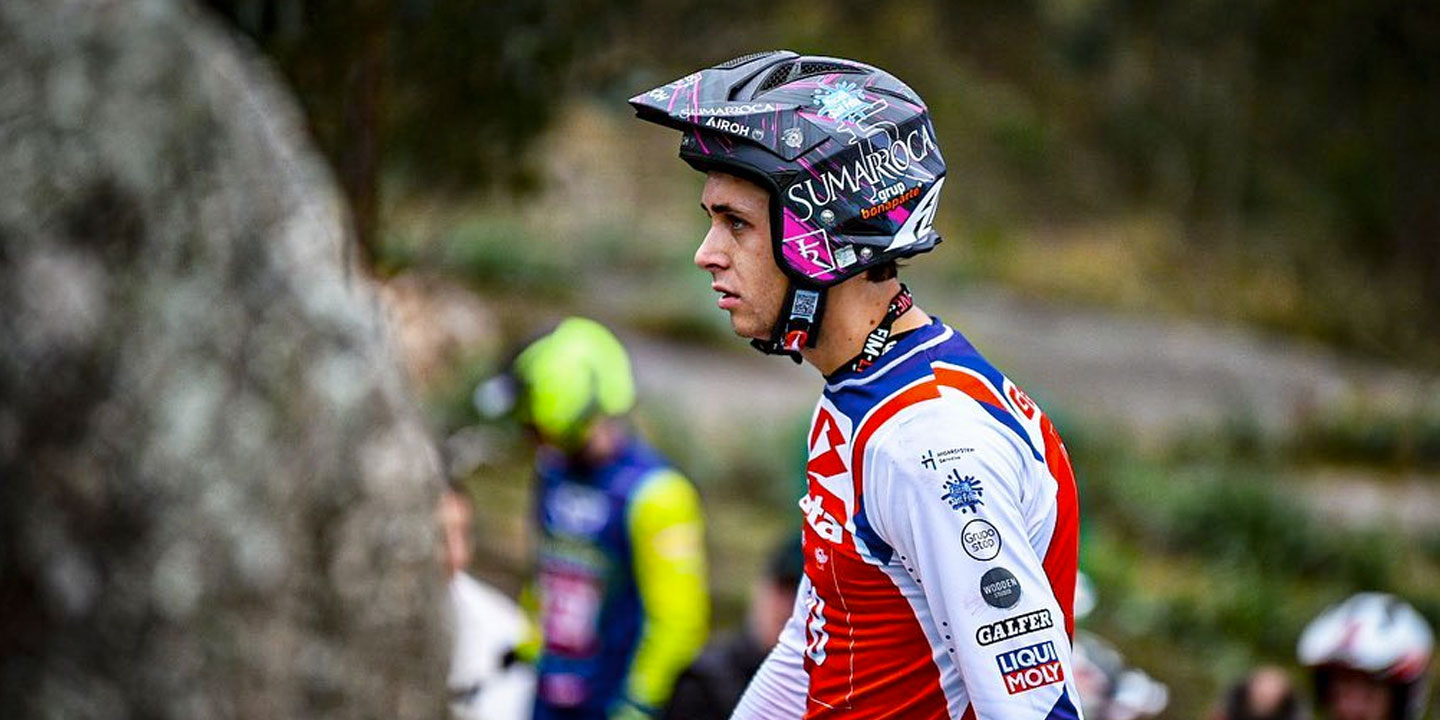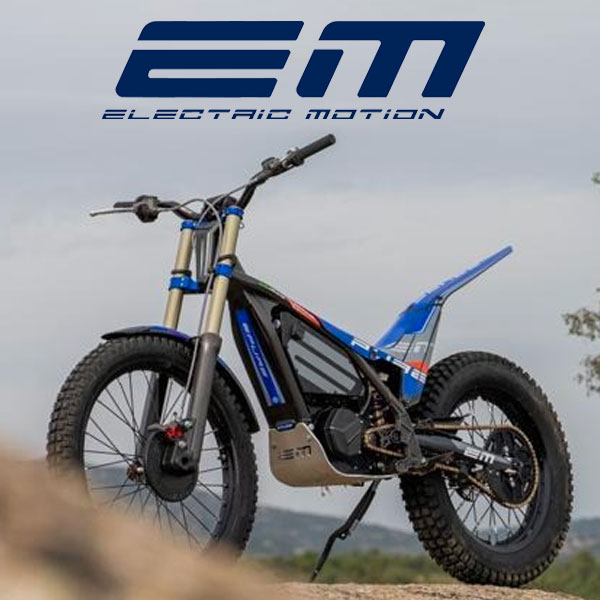When we’re at less than a month until the start of the 2023 Trial World Championship season, the FIM has officially confirmed the rumours that had been circulating about the possibility of introducing important modifications to the regulations that would directly affect the format of the competition.
Finally this confirmation has taken place and we can already announce that the FIM, after agreeing with the organizing clubs and the manufacturers, will carry out three major modifications that we break down below.
WHAT ARE THE FIM’S OBJECTIVES WITH THE NEW REGULATION CHANGES?
It is clear that trial is an elite sport and getting to compete with the best riders in the world is a complicated task. Most of the riders do not manage to get past the Trial2 category and the means required to become professional in TrialGP are very high.
For this reason, the FIM is committed to a model that is more accessible to both riders and fans.
Greater dynamism in the competition is also sought, something that is essential to achieve a near future where trial competitions can be broadcast on different television media and streaming.
Another factor is the reduction of structural costs for drivers and teams. By opting for a lesser role for the figure of the backpacker and mechanic, the tendency should be that costs can be reduced and accessibility for new participants is more attractive.
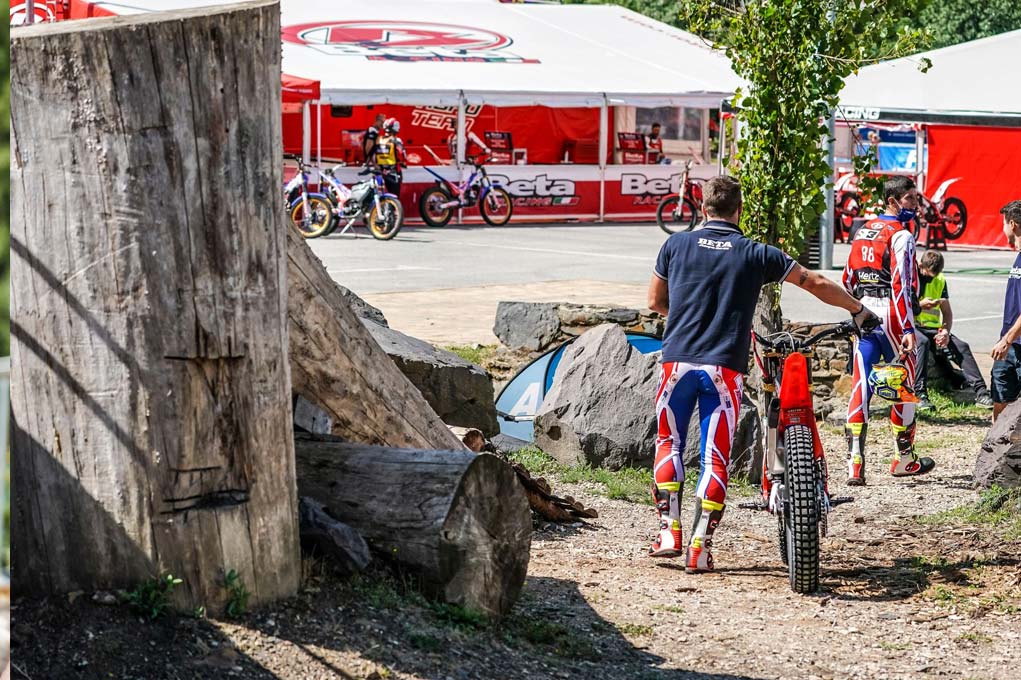
BACKPACKING IS ELIMINATED IN 50% OF AREAS
This is probably the most delicate point of all. Jordi Tarrés already spoke about this in this interview we did in 2020, with a very interesting perspective that largely has to do with this greater accessibility of the pilots, since indisputably, the level of the areas will have to decrease, at least in terms of danger.
In the 2023 TrialGP World Championship there will be no backpackers in 50% of the areas, affecting only the top category for the time being.
Here are opinions for all tastes. On the one hand, brands even find it interesting, since the disappearance of the backpacker would lead to a reduction in costs, although in this 2023 edition, being only in 50% of the areas, this saving does not exist.
On the other hand, that of the pilots, who, looking out for their safety, do not look favorably on it. In any case, those who have the most to lose are the main favourites, who will face easier areas, which will leave opportunities for other drivers who are in the second half of the table on a regular basis.
The FIM defends that the reduction of the presence of backpackers should be gradual and not in 100% of the areas, in order to be able to study well the consequences and impact of these regulations on the result of the competition.

CREATING AN ENCLOSED PARK
The FIM also wants to regulate the mechanical access of the bikes during competition. In trials it is almost impossible for a rider not to finish a race for mechanical reasons, since in one way or another they end up being solved. In addition, in two-day races, the bike is fully worked at the end of the day, minimizing all the exhaustion effects of the first day of competition.
The evolution of the regulation It goes to the point of checking the bike the day before the competition and, from there, that only the rider and in a very short space of time between both days, can make some minimal adjustments to the bike, so that a mechanical complication on Saturday can take its toll on Sunday.
Although the details have not been specified, the operation will probably be that, after the end of the competition on Saturday, the bikes will head to a parc ferme and the riders will have twenty minutes to make some minimal adjustments to the bike.
In any case, what is certain is that this novelty adds one more point of excitement and highlights the conservation of the mechanics in the global context of the Grand Prix. And, as we said before, it is another step towards equality between riders, since a private rider will have the same space of time and resources to work the bike in that regulatory time space for the “set up”.
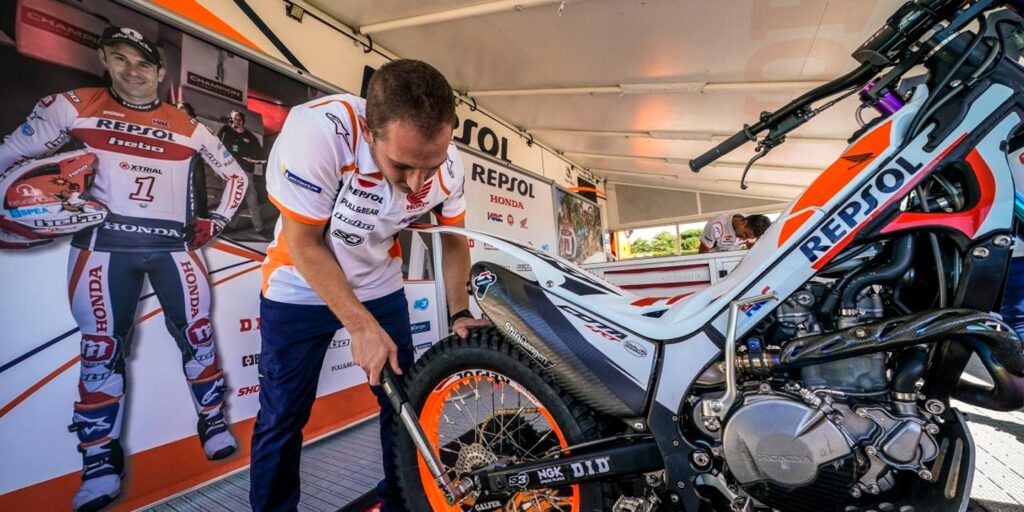
DEVELOPMENT OF AN IN-ZONE CONTROL SYSTEM
The regulations of the 2023 Trial World Championship will be nonstop, so it is not allowed to stop in the zone.
The FIM is aware of the criticisms and weaknesses of the non-stop regulations, which end up being very difficult to evaluate objectively and are far from being a fair evaluation system for all riders, inevitably leading to alteration in the standings.
Although the 2023 Trial World Championship will not start with a system that helps judges objectively measure these stops, work is underway on a device capable of measuring stops, setbacks, feet, time in the zone and other aspects that influence scores.
In 2022, a first prototype was already tested by a private company and the tests were very satisfactory. Although the system was submitted to the FIM, its use was ruled out this season, citing high costs. At Trialworld we have had access to more information about this device, and the reality is that it does have an initial technological cost, but its progressive implementation in international and national competitions would be affordable, providing interesting solutions even for the rider himself, with data on the bike, its maintenance and other variables that would like to be parameterized. In this aspect, it seems that the FIM wants to develop its own device and be the owner of this technology.

ASSESSMENT OF FIM MANAGERS
Thierry Michaud, Director of the FIM Trial Commission, said: “These are fruitful consultations that we have had with the Manufacturers and that we will keep open. The FIM and the manufacturers want to work together to introduce changes that will gradually orient Trial towards more accessible horizons, in line with the trends of the 2020s and the years to come.”
“We agree that, without a doubt, competitive practice has become too elitist, excessive and demanding and that, therefore, we must work to make it more ‘reasonable’ again. These major changes will require progressive adaptations of organizations and mindsets.”
“The FIM and its Trial Commission continue to believe in the present and future of this discipline and will work tirelessly on it with its Manufacturers, Teams and Riders partners without forgetting its affiliated Federations, organisers and associative clubs whose judges and volunteers deserve recognition and support.”
Donato Miglio, Trial Manufacturers Representative, stated: “This is a real step forward in our relations with the FIM. We are aware of the current direction taken by Trial and understand that it is important to work together, between the Manufacturers and also with the FIM. TrialGP is the true showcase of the sport and we know the impact it has on the Trial bike sales market.”
“We absolutely want to evolve our tendencies and those of teams and riders, both professional and amateur – and possibly the development of motorcycles – towards approaches more in line with current social, environmental and economic conditions. The reduction in attendance and the more individual practices correspond more to the reality of the different practices.”
2023 TRIAL WORLD CHAMPIONSHIP CALENDAR
